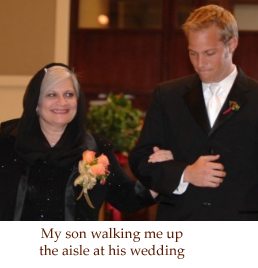A pickle used to be a cucumber, but when it sits in a brine solution of vinegar and spices, it absorbs the flavors of the brine and turns into a pickle. That’s fine for cucumbers, but it’s terrible for people. When we live immersed in the “brine” of our culture, we can easily absorb its values and philosophies. Instead of thinking and living like Jesus, we look and sound and live just like the rest of the surrounding culture.
Alarmingly, this is true of the church as well. The divorce rate of evangelicals is no different from that of our culture. The number of our men struggling with a secret pornography addiction is astronomical (one pastor told me he thought it was upward of 70%). The vast majority of our high school students have mentally disconnected from the church, and often their faith, before they’ve graduated.
Paul exhorts us in Colossians 2:8-9,
See to it that no one takes you captive through philosophy and empty deception, according to the tradition of men, according to the elementary principles of the world, rather than according to Christ.
Translation: Don’t be a pickle.
What does a culturally captive pickle look like? Particularly a “pink pickle”?
One of the highest values in our culture is sex. If you think of sex as a right or a need like eating or sleeping, and you’re not getting any (or as much as you want), you might be angry. If you think God’s antiquated policy of keeping sex within marriage means He’s holding out on you (see Psalm 84:11), you’ve been pickled. If you dress to make guys look twice at you (your body, not your face), buying into the “if you’ve got it, flaunt it” philosophy, you’re a pickle.
Some mothers will do anything to keep her children from being angry or unhappy with them. They believe their job is to make and keep their children happy, especially if they feel guilty because of working or being a single mom. Some mothers will do anything to insure their children’s popularity. Instead of seeing our children as belonging to God, and over whom He has made us stewards, children’s approval and popularity can become idols. There are lots of pickle-flavored mothers.
What’s your perspective on entertainment? If you sit in front of TV or movies, watching and listening without thinking, “How does this compare to what God says in His word?”, then you are absorbing the world’s brine and you’re a pickle. Are you one of the women secretly addicted to the Twilight books or to romance novels that are actually emotional pornography? The purpose of porn is to arouse desire for something that God has not given: sexual pornography arouses physical feelings for someone other than a spouse, and emotional pornography arouses emotional feelings of longing for a relationship other than one’s spouse.
Speaking of other kinds of pornography, how much time do you pore over catalogs and ads in magazines and newspapers, arousing the lust for materialism? American culture highly values “stuff” because 1) we deserve it and 2) it will make us happy. Meanwhile, storage rental facilities keep popping up because we don’t have enough room for all the stuff we already have that apparently didn’t make us happy because we keep buying more.
So. . . are you a pickle?
This blog post originally appeared at blogs.bible.org/engage/sue_bohlin/are_you_a_pickle
on February 2, 2010.
 It’s pretty easy to find me at our church; I’m the one always in a hat. Someone always makes an affirming comment like “Love the hat!”—and probably the biggest reason is that I’m the only one wearing one. Even in a church of 5,000 people. Most people assume it’s a fashion statement, but I wear a hat after wrestling with God over the issue of headcoverings for six years.
It’s pretty easy to find me at our church; I’m the one always in a hat. Someone always makes an affirming comment like “Love the hat!”—and probably the biggest reason is that I’m the only one wearing one. Even in a church of 5,000 people. Most people assume it’s a fashion statement, but I wear a hat after wrestling with God over the issue of headcoverings for six years. So I looked for someone to tell me what that symbol of authority should be, if not a physical symbol. A wedding ring? Doesn’t work for unmarried women. Hair? That’s already standard issue for women, even unsubmissive rebellious ones. I asked my husband what he thought, and he gently replied, “I can’t see any other conclusion from the text. I’ve always thought wearing a covering is what is commanded.”
So I looked for someone to tell me what that symbol of authority should be, if not a physical symbol. A wedding ring? Doesn’t work for unmarried women. Hair? That’s already standard issue for women, even unsubmissive rebellious ones. I asked my husband what he thought, and he gently replied, “I can’t see any other conclusion from the text. I’ve always thought wearing a covering is what is commanded.”